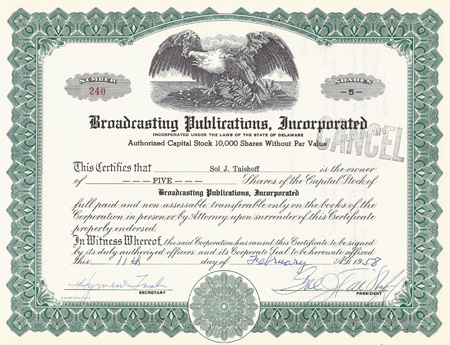Taking Stock of Foreign Ownership

The smarter way to stay on top of broadcasting and cable industry. Sign up below
You are now subscribed
Your newsletter sign-up was successful
Like many issues broadcasters are seeking some help on before the spectrum auction, foreign ownership in U.S. TV stations faces its share of FCC hurdles. These obstacles, in some cases, also block the path to more minority ownership.
In filings with the FCC, the National Association of Broadcasters and the Minority Media & Telecommunications Council have asked that the FCC be more flexible in how it gauges the amount of foreign ownership permitted in a TV or radio station or group.
Specifically, they say they need a “reasonable” method for estimating foreign ownership in a publicly traded company whose shareholders may not be readily, or even legally, identifiable. They argue that one particular assumption—“every ownership share whose owner does not respond to a survey must be assumed to be held by a foreign entity”— is an illogical and inefficient approach.
Last November, the FCC voted unanimously to clarify that the 25% benchmark for foreign ownership limits was not a hard cap, but instead a trigger, and that it would consider stakes larger than that on a case-by-case basis.
But the NAB and MMTC suggested in recent comments that outdated rules on shareholder disclosures remain an obstacle to more foreign ownership.
The benchmark still remains a benchmark, and the NAB says the shareholder issue translates into a de facto ban on publicly traded companies investing in broadcast licenses because of the difficulty of tracing shareholders.
Rather than shares being held by individuals with stock certificates, as was the case decades ago, most shares are held by brokerages that do not identify the individual shareholder to the company issuing the stock. SEC rules limit brokers from providing companies with shareholder info without the shareholder’s permission, broadcasters point out. For the FCC to assume that all those unidentifi ed shareholders are foreign provides no alternative but to break SEC regulations to disprove it, which appears to be an unnecessary bit of red tape.
The smarter way to stay on top of broadcasting and cable industry. Sign up below
Even if they were foreign held, the NAB suggests, “an undisclosed, non-attributable public shareholder will be unable to influence the content aired by a widely traded broadcast licensee or to somehow exert control sufficient to result in the airing of foreign propaganda.”
The foreign ownership limits were meant to prevent other countries from taking over U.S. airwaves for financial or propaganda purposes, particularly in times of war. Besides, says the NAB, the FCC has given wireless companies some slack in identifying foreign ownership, “specifically recognizing the difficulties of identifying the citizenship of shareholders.”
Broadcasters are already feeling like redheaded stepchildren when it comes to the FCC’s relative treatment of the two industries. “Broadcasters should be similarly treated [to wireless],” the NAB said. “The nation’s communications infrastructure is very important, whether broadcast or wireless, and should be regulated equitably.”
MMTC says the outdated rules are an obstacle to attracting the foreign capital minorities need to overcome what it says is a severe lack of capital at home.
According to the FCC’s latest figures (as of June), all minorities combined held only 3% of broadcast TV station licenses.
It is unclear how the FCC will receive the request. FCC chairman Tom Wheeler last week said station ownership diversity is receding in importance as the diversity fight moves to the broadband arena.
DAY IN COURT
It appears the FCC’s timetable for holding the broadcast incentive auction will be determined by the federal courts. The National Association of Broadcasters, Sinclair and the FCC are all agreed on a proposed briefing schedule for the broadcasters’ challenge to the auction, but even an expedited process will not give the agency enough time to make a mid-2015 target date if either wins their challenge.
According to a joint briefing schedule submitted to the court by all three parties, briefs in the case would not be finished until Jan. 20, which leaves oral arguments and a decision, which could take a couple more months even on an expedited schedule.
If the FCC wins, the mid-2015 timetable might still be makeable. But if it loses and has to redo the May 2014 order establishing the basic framework, it would likely push back that timetable, particularly if the court sides with Sinclair’s challenge, a broad-brush complaint that the entire order is illegal and should be vacated.
One broadcaster source involved in auction strategy suggested the date will almost certainly push into 2016. The FCC had no comment, but a source on background said that while the agency can’t control the court schedule, chairman Tom Wheeler continues to proceed on the mid-2015 timetable.
Contributing editor John Eggerton has been an editor and/or writer on media regulation, legislation and policy for over four decades, including covering the FCC, FTC, Congress, the major media trade associations, and the federal courts. In addition to Multichannel News and Broadcasting + Cable, his work has appeared in Radio World, TV Technology, TV Fax, This Week in Consumer Electronics, Variety and the Encyclopedia Britannica.

